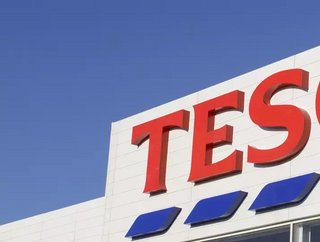Tesco slashed its CO2 emissions by 13% last year

Tesco slashed its CO2 emissions by 13% in 2017 compared to its 2016 level, as the supermarket giant moves to become a completely carbon-neutral business by 2050.
The British supermarket said it had achieved the reductions by increasing its use of renewable power - now used 100% in the UK and 55% globally - as well as investing in energy efficiency.
In doing so, Teso says it has reduced its net carbon intensity per sq. ft. of retail and distribution floor space by 6% compared to the previous year.
These reductions mean that the supermarket is currently on track to reduce its emissions by 35% by 2020.
It also plans to source 65% of its power from renewables by 2020 and 100% by 2030.
SEE ALSO:
- AccorHotels partners with Too Good To Go in bid to reduce food waste
- Unilever's Sustainable Living Brands fueled 70% of its turnover growth last year
- AB InBev buys up to 80 hydrogen trucks from Nikola as part of sustainability drive
“It is recognised that we need to work together across society to build a truly sustainable future and the business fully supports global efforts to build this future, including the UN Sustainable Development Goals and the Paris climate agreement,” said Lindsey Pownall, Tesco’s Corporate Responsibility Committee Chair.
“The new targets ensure that our supply chain and operations support (the agreement) to limit global temperature rises to 1.5 degrees Celsius this century, as well as our long-term ambition to become a zero-carbon business,” she added.
In the same report, Tesco also reported strong sales growth achieving GBP£51bn (US$69.1) in sales in the past year across its 6,800 worldwide stores.
- What's Apple’s Promise on Clean Energy and Water Investment?Renewable Energy
- Colgate-Palmolive’s Energy Efficiency Recongised Once AgainSustainability
- EY Helps Make Extreme E a ‘Sustainable Beacon’ of RacingSustainability
- E.ON Next: Customer-Centric Approach Drives Business SuccessSmart Energy






